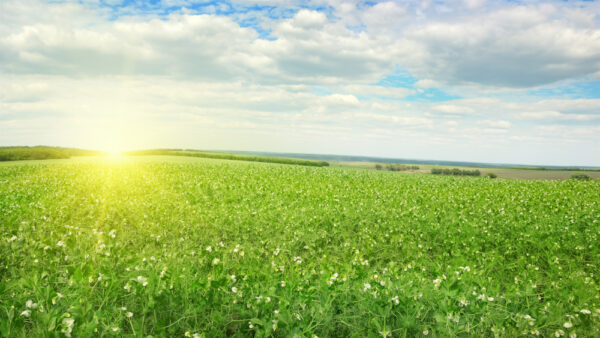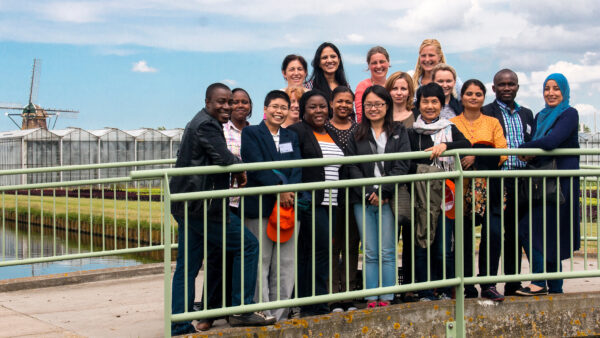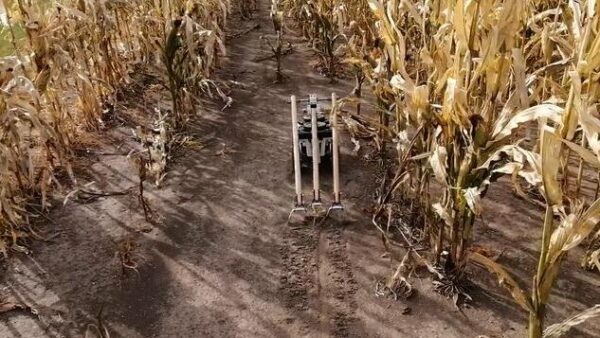A closer look at the French Seed Association UFS, a young organization built on a rich historical tradition
UFS was created as a unified organization in 2009, founded on the roots of six crop specific associations, which were themselves strongly incorporated into the French agricultural environment. Those individual bodies did the job well and served their members, but the growing complexity of the subjects to address, their transversal impacts and the consolidation of the industry, encouraged some companies’ leaders to think about improving their representation and the voice of the seed industry in France and abroad.
After a thorough analysis, and a close look at some existing and efficient national seed associations in the industry, the new organization was set up: the Union Française des Semenciers (UFS).
UFS Today
The new association kept the principle of the six sections dedicated to crops, where any specific issues are dealt with as it used to be in the former shape, but three commissions were added, each in charge of cross-cutting issues,– “Regulatory and Innovation”, “Intellectual Property,” and “Production”.
The six crop sections in UFS are the following:
- Cereals and Pulses
- Forage and Amenity Grasses
- Beets and Chicory
- Vegetables and Ornamentals
- Oil Crops
- Maize and Sorghum
UFS represents the interests of more than 130 companies, with a wide range of activities from breeding, production or marketing of seeds. The company members are dispersed all over the French territory and their diversity provides local employment. Through their investment in innovation the companies are leveraging modern agriculture, the food industry and environment, which can be hot political topics.
In order to efficiently drive the Association, UFS took a lot of care to provide it with a modern governance body. This is reflected into the breadth of the 18 board members, representing the diverse range of players. The UFS board is currently lead by its president, Régis Fournier.
The operational support is provided by a team composed of 13 people, with a good balance in expertise, seniority and experience in the seed industry, most of them having been recruited since the creation of UFS. At the head of the UFS Secretariat is its general manager Eric Devron.
The success of UFS is probably based on the tight connection between the team at the UFS Secretariat and the members. In addition, there are more than 200 active working groups that create a link that provides trust and practicality in any contribution that the association generates.
Just to give an example, the UFS General Assembly brings high visibility to the association and to the French seed sector, gathering more than 300 participants representing political deciders and executives of the main stakeholders. It is the place to be in November! At the last UFS General Assembly, the association proudly received Stephane Le Foll, the French minister of Agriculture.
Another task of UFS today is to provide the necessary connection with the European and global environment such as the European Seed Association (ESA) and the International Seed Federation (ISF). UFS puts a lot of efforts into ESA as a coordinating headquarters to grow the French connection with the association active in the European Union. UFS believes that the global ability to set up a true network and team spirit will leverage UFS’ actions at the EU level. Most of the UFS members who are already organized as such, encourage us to move towards this community of interconnected and more centrally driven platforms.
Mission
UFS is the voice of the French seed industry at any place where decisions are prepared and made.
Our main missions can be summarised as:
- Being a forum of exchange for members;
- Assisting members with technical and regulatory development, and professional best practices;
- Representing UFS members and their interests at the international level as well as the national level;
- Making proposals to public authorities and other parties and representing common industry positions;
- Developing a positive image for the seed industry’s activities through promotion, education and dialogue with the general public and the media.
In order to represent its members, it is crucial that good policy papers are drafted and agreed upon. An example of its policy making activities are the UFS position papers. Some recent position papers are those on ‘Seeds for Biological Agriculture’ of April 2015 and on ‘New Plant Breeding Techniques’ of May 2015
The French Seed Industry
France, according to the National Interprofessional Association for Seeds and Plants (GNIS) and ISF figures, is the number one seed exporting country in the world. Some of the reasons contributing to this success are a wide range of climates and soils that allow for almost any crop to grow in good conditions. Besides this, France also has a solid agricultural environment, good farming skills and there is political support. All these factors are securing high and stable crop yields and top seed quality. And as a result, this has lead over the last 40 years to a specialization and concentration of investments in French R&D labs, in seed plants and various “networks of excellence”.
However, since the late 90s, the recent EU policies turned the blue-sky story into a foggy future for agriculture in Europe. This started with the ban on the production of genetically modified crops, followed with the suspicions and subsequent ban on some valuable seed treatment options and now the evaluation of the new plant breeding techniques.
Fortunately, UFS is expecting a better consideration of the benefits of plant breeding and high standard seed quality. Some recent reports, such as the “Agriculture and Innovation 2025” ordered by the French prime minister, shed some positive light on new technologies and investments into seed breeding.
UFS is happy to confirm that at high decision levels, crop enhancement through better genetics will provide solutions to water scarcity, climate change, environment issues. This high-level realization might turn the seed sector’s solutions into opportunities and better times can be foreseen.
Being Practical – What’s Next?
We obviously expect that the new plant breeding techniques will not be regulated in Europe as GM technologies without a scientific-based approach. We wish that existing IP tools will be handled differently as technologies and markets evolve. We need a European internal market with common rules without unnecessary administrative burden. We will benefit from stable and visible regulation as we want our country to remain the very place to set up seed investment in Europe and in the world … we expect a balanced implementation of the Nagoya Protocol and the International Treaty on Plant Genetic Resources for Food and Agriculture that will allow plant breeding to deliver high-speed output.
UFS firmly thinks that France will remain a diversified and high-performing agriculture country, allowing its seed sector to grow. Seed companies’ investments in France have remained significant during this last decade showing confidence in a bright future, where technology adoption and solutions brought by new varieties to consumers and to the society will put the seed sector and UFS at the heart of the game. UFS is happy to act towards accelerating this “comeback” of agriculture and the seed sector, and fostering solid markets for UFS members.
Innovation in the Focus During Royal Visit to France
France and The Netherlands have a shared responsibility for the future of agriculture and horticulture. This came to the forefront during the recent state visit of the Dutch King Willem Alexander and Queen Maxima to France in mid-March where innovation took centre stage. Companies from both countries work closely together and the innovation that is brought into the sector are an important basis for food security, for sustainable production and for product quality and diversity. In conjunction with this visit, further cooperation between the seed sectors of both countries were discussed with the following topics:
- Maintaining the good balance in the use of tools that are available to plant breeders to protect their intellectual property rights on new plant varieties or innovations;
- The prevention of unjustified barriers with regards to access to genetic resources for plant breeding, which are eminent through the implementation of the Nagoya Protocol for which the European Commission is currently drafting guidelines;
- The prevention of unnecessary regulations for new plant breeding techniques. In case there are no specific risks for mankind or the environment, such unjustified regulations would annihilate the great opportunities that these techniques offer to farmers and consumers;
- A guaranteed access arranged by law to quality seeds for organic farmers, at a moment where such rules are being discussed at EU level; and
- Maintaining an open market and level playing field with identical rules for all plant health and seed treatments.











